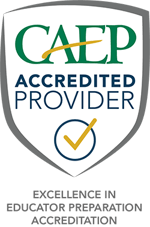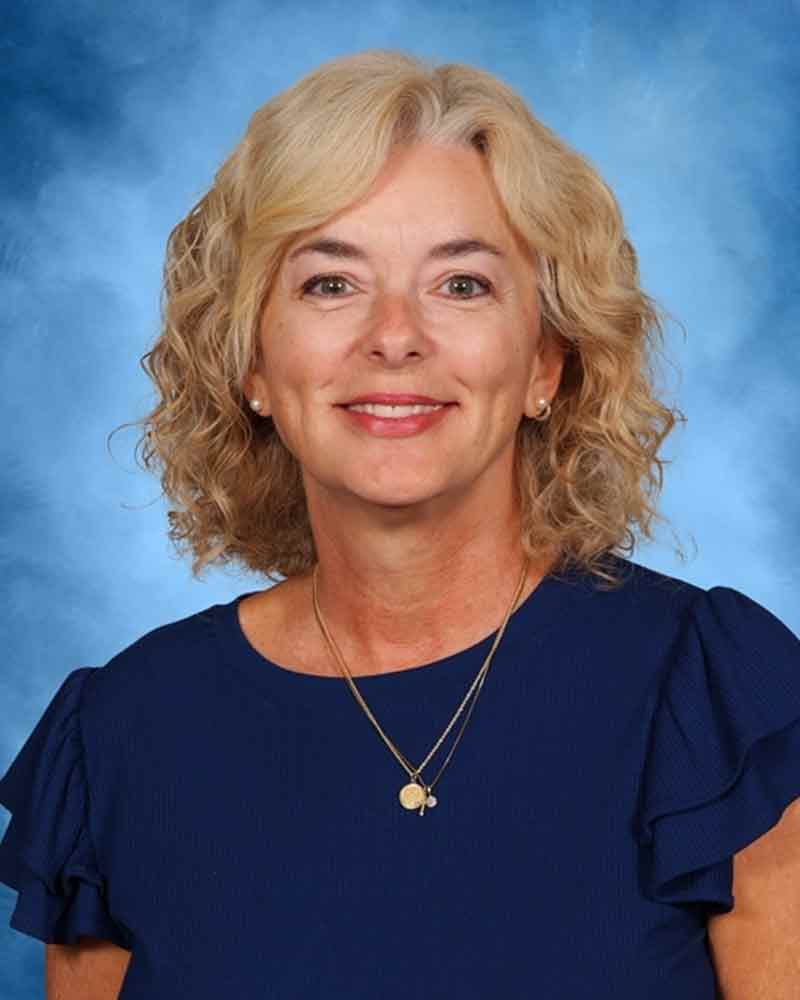Library & Information Science
The Master of Library and Information Science equips you to work as a librarian in grades K-12 and to collaborate with teachers and students to promote research, literacy and technology skills. The program allows you to add a librarian endorsement to an existing teaching license or to earn a full degree in library and information science.
Want More Info?
Program Benefits
- Complete your degree online in 15 months with no residency requirements.
- Take only one class at a time with all materials delivered to you.
- Complete your program with a supportive cohort of students working toward similar goals.
- Enjoy the collaborative learning environments fostered by our small class sizes.
- Learn from faculty who possess the highest degrees in their fields and have relevant and valuable real-world experience.
What to Expect
As a student in Trevecca’s Master of Library and Information Science program, you’ll be part of the only library science program in Tennessee that is nationally recognized by the American Association of School Librarians and the Council for Accreditation of Education Preparation. This degree doubles as a full MLIS degree program and a librarian endorsement for licensed teachers, transforming classroom teachers into school library leaders in technology, instruction and information specialization.
During your 15-month online program, you’ll gain the skills you need to serve as a librarian in grades K-12. You’ll take part in coursework and project-based learning that teaches you how to think outside the box, create engaging content and instruction, employ effective research practices, integrate emerging technologies and promote literacy.
Why Choose Trevecca?
 Founded in 1901 and a leader in online education for more than two decades, Trevecca helps students discover and pursue an individual calling by providing innovative instruction; cultivating a supportive, Christ-centered community; and establishing relationships that open doors.
Founded in 1901 and a leader in online education for more than two decades, Trevecca helps students discover and pursue an individual calling by providing innovative instruction; cultivating a supportive, Christ-centered community; and establishing relationships that open doors.
 Recognized nationally and locally for academic quality, Trevecca has earned a reputation for providing the world with servant leaders, problem solvers and difference makers. Trevecca’s holistic approach to education encompasses intellectual, social, emotional, physical and spiritual growth.
Recognized nationally and locally for academic quality, Trevecca has earned a reputation for providing the world with servant leaders, problem solvers and difference makers. Trevecca’s holistic approach to education encompasses intellectual, social, emotional, physical and spiritual growth.
 As a Christian university, we offer programs that explore the ways faith intersects with your field of study. This means you’ll gain your MLIS degree in a supportive, Christian community with small classes and engaged faculty members who care about you and your goals.
As a Christian university, we offer programs that explore the ways faith intersects with your field of study. This means you’ll gain your MLIS degree in a supportive, Christian community with small classes and engaged faculty members who care about you and your goals.
 Trevecca’s School of Education degree programs meet the rigorous national standards for education preparation established by the Council for the Accreditation of Educator Preparation (CAEP). CAEP promotes excellence in educator preparation through content and pedagogy, clinical partnerships and practice, candidate recruitment, progression and support, program impact, quality assurance and continuous improvement.
Trevecca’s School of Education degree programs meet the rigorous national standards for education preparation established by the Council for the Accreditation of Educator Preparation (CAEP). CAEP promotes excellence in educator preparation through content and pedagogy, clinical partnerships and practice, candidate recruitment, progression and support, program impact, quality assurance and continuous improvement.
Course Descriptions
Get details on all the courses you’ll complete as you work toward this degree at Trevecca.
Read MoreHere’s a look at the approximate tuition rates you could expect for this program at Trevecca, including the cost per credit hour and the total tuition expense for the full degree program. Please note that rates and fees are subject to change.
Here’s a look at the approximate tuition rates you could expect for this program at Trevecca, including the cost per credit hour and the total tuition expense for the full degree program. Please note that rates and fees are subject to change.
Cost/Credit Hour$500 |
Hours30 |
Tuition Cost*$15,000 |
*$150 Student Resource Fee assessed per course. $150 course material cost per course.
- Admissions
- Notable Alumni
Requirements
- Have earned a bachelor's degree from an institution accredited by a CHEA-recognized regional accrediting agency or the Association for Biblical Higher Education. Students who do not meet these degree requirements may be conditionally accepted in accordance with the Conditional Admission Policy.
- 3.0 cumulative GPA for all prior coursework
Additional Required Materials
- Scanned photo ID
- Copy of teaching license (if applicable)
- Submit proof of fingerprinting and complete successful background check
Getting Started
- Complete the online application (it's free!).
- Need help applying? Read the step-by-step instructions here!
- Fill out FAFSA to be considered for financial aid.
- Request official transcripts from your undergraduate institution.
- Complete an interview with the program coordinator and MLIS interview team.
Trevecca alumni with an MLIS degree have made an impact on the library community both locally and nationally. Outstanding graduates include:
- Stephanie Ham, director of school libraries for Metro Nashville Public Schools and American Library Association (ALA) chair of supervisors of library programs.
- Hannah Little, Webb School of Knoxville librarian and ALA blogger.
- Becky Jackman, recent president of the Tennessee Association of School Librarians (TASL) and American Association of School Librarians (AASL) council representative.
- Misti Jenkins, president-elect of the Tennessee Association of School Libraries (TASL).
- Lakisha Brinson, School Library Journal 2015 “School Librarian of the Year” finalist.
- Amanda Smithfield, AASL “Mover and Shaker” 2015 award recipient.
- Connie Sharp, Elementary School Librarian of the Year 2015, National Board Certification.
Alice Bryant, awarded the Lulu Hampton Owen Chair of Excellence in Teaching as the middle school librarian at Harpeth Hall School in Nashville.
Career Opportunities
The United States Bureau of Labor says communities are increasingly turning to libraries for a variety of services and activities, and there will be a continuous need for librarians to manage libraries and help patrons find information. With a Master of Library and Information Science degree, you’ll be able to help fill this need. Graduates of this program are well equipped for the following roles:
- K-12 librarian
- Teacher
- Professor
- Website developer
- Instructional designer
- Writer
- Researcher
- Digital developer
- Curator
Our Faculty
-

Judy Bivens
Director of MLIS
Dr. Bivens has 25 years of experience as school librarian and 18 years of experience as an academic librarian. She has served on the American Library Association Council; served as chair of the Educators of School Librarians, chair and current ...Read Full Bio -

Andrea Fowler
Waggoner Library Director
Read Full BioDr. Fowler serves are the Trevecca Library Director and Archivist. She has several years experience in these areas. She has overseen the development of the Ray Thrasher Archives at Trevecca.
-

Lindsey Kimery
Adjunct Professor
Read Full BioMs Kimery serves as the library coordinator for Metro Nashville Public Schools. She has held various positions in the American Library Association including :
- American Association of School Librarians (AASL), ...
-

Melissa Ralston
Adjunct Professor
Dr. Ralston has experience as an elementary and high school librarian. She is currently the librarian at Brentwood High School in Brentwood, Tennessee. Dr. Dr. Ralston has many years of experience with technology training working Tennessee ...Read Full Bio -

Priscilla Speer
Adjunct Professor
Read Full BioDr. Speer has served at Waggoner Library for over thirty years. She serves as the online learning specialist for the library. She has vast experience in reference and library technology.
Course Descriptions
Get details on all the courses you’ll complete as you work toward this degree at Trevecca.
Professional and Ethical Issues
MLI 5000
Information Technologies II
MLI 5020
Knowledge Environment
MLI 5030
Fiction/Non-Fiction Resources for Children and Young Adults
MLI 5040
Research Tools and Strategies
MLI 5050
Knowledge Management
MLI 5060
Knowledge Leadership
MLI 5070
Instructional Design in Libraries
MLI 5075
Collection Development and Organization
MLI 5080
Exit Assessment/E-Portfolio
MLI 5100
Professional Practice
MLI 5090
OR
Enhanced Student Teaching
MLI 5200
*MLI 5090 and MLI 5200: Includes a required field experience. Field experiences and clinical practice provide evidence that students are learning when being taught by candidates. In order to participate in mandatory experiences, all candidates will be required to undergo a background check and be fingerprinted, at their own expense, prior to beginning the first class.
*For a complete list of courses, tracks and other relevant information, view the program's course catalog.
Related Articles
-

Why Now Is the Time for Teachers to Pursue a Further Degree
Whether you’ve contemplated becoming a school or district administrator or have a higher ed position in mind, now is the time to ...
Read More -

Trevecca Launches Free Online AI Professional Development Course for Educators
Discover Trevecca Nazarene University's free online AI course for educators to enhance productivity and efficiency. Register now ...
Read More -

Seven Needs of Adult Learners and How to Meet Them
Discover the seven key needs of adult learners and how to meet them in higher education. Explore the transformative journey of ...
Read More

